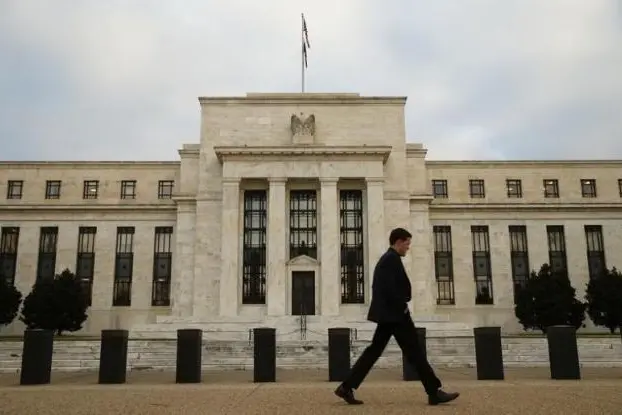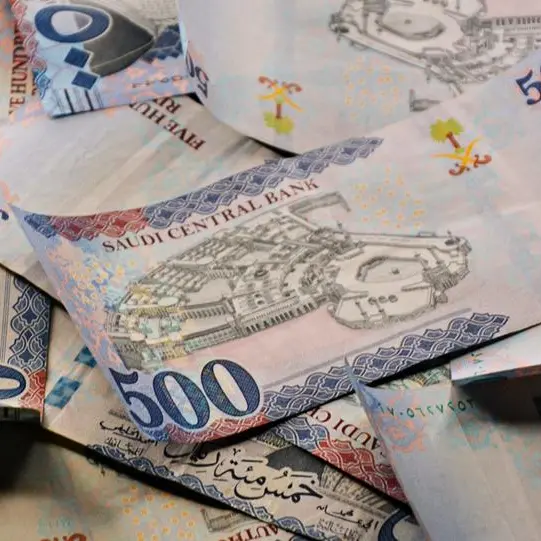PHOTO
SAN FRANCISCO - U.S. Federal Reserve officials claimed a big win in hitting their inflation target this week, confident that they had put a decade of false starts and deflation scares behind them.
They may have President Donald Trump to thank.
In place of a thicket of forces that held inflation down in recent years, the economy is digesting massive fiscal stimulus from the Trump administration's tax cuts and spending as well as import tariffs that have sent steel and aluminum prices higher.
Prices of a wide variety of goods could shoot up further if brewing trade tensions between the United States and a number of its major trading partners, including China, erupt into a full-scale global trade war.
Add to that a U.S. labor market where businesses are competing for workers and costs are starting to rise, and "there is a lot of upside potential that is out there," Atlanta Fed President Raphael Bostic said in an interview with Reuters.
"That has really given me a bit of confidence," that inflation will stay around the 2 percent target level, he said.
Bostic, who is a voting member of the Fed's rate-setting committee this year, said the U.S. central bank did not see anything on the horizon that would make it nervous about a U-turn on the inflation front.
"Looking out over the medium term we don't see obvious signs that there is going to be some downward punch to the gut that would pull inflation off of the target," he said. "As long as that is the case then we should be in this range for a while."
The Fed opted to keep interest rates unchanged at its policy meeting this week, but its statement on Wednesday kept it on a clear path to raise borrowing costs at its June 12-13 meeting and at least once more after that before the end of the year.
U.S. employment numbers released on Friday bolstered that position.
The economy added 164,000 jobs in April, well above what Fed officials consider the level needed to absorb those entering the workforce for the first time as well as those returning to it. The unemployment rate fell to 3.9 percent, the lowest level since December 2000.
The changes to the Fed's statement were considered modest by most analysts, a series of tweaks that accommodated the economy's continued growth, inflation readings that have climbed steadily to near the Fed's 2 percent target, and the disappearance of temporary factors that dampened inflation.
For the first time in a long time, there were no "base effects" or looming global risks - no oil price collapse, no euro zone troubles, no cut in cellphone contract prices - to cloud the inflation data.
"I feel this is pretty much a Goldilocks economy," San Francisco Fed President John Williams said in an interview with broadcaster CNBC on Friday, adding that he does not see a rapid increase in inflation coming.
'PRETTY ROSY'
Taken together, the inflation language in the Fed's policy statement this week signaled a significant shift at the core of the central bank, according to Goldman Sachs analysts David Mericle and Jan Hatzius.
Rather than being characterized as a missed target that needed steady monitoring or which was facing imminent risks, the statement deemed inflation "near" the desired 2 percent level. More significantly, the Fed concluded it would remain around that level for the time being.
If it seems too perfectly calibrated, things could still go wrong. Wage increases remain weak by historical stands, noted Cornerstone Macro analyst Roberto Perli, and prices are being held down by global inflation that is "pretty low and not heading higher."
But the debate has clearly shifted, with even Fed officials who were previously skeptical about the inflation outlook considering not whether to raise rates, but how fast. Bostic, for example, now sees three or as many as four hikes this year, after starting 2018 with a forecast of two.
"This is not a declare-victory type of moment. We are aware, we are alert," Bostic said. But "you look at the way the economy is functioning and it is pretty rosy."
(Reporting by Howard Schneider Additional reporting by Lindsay Dunsmuir in Washington Editing by Paul Simao)
© Reuters News 2018





















